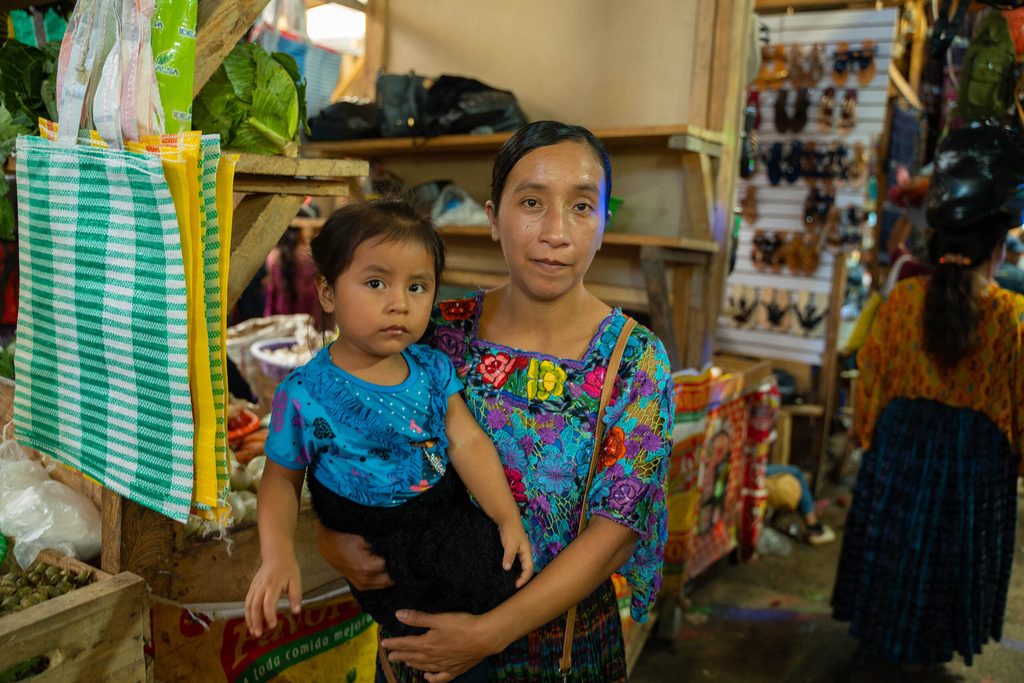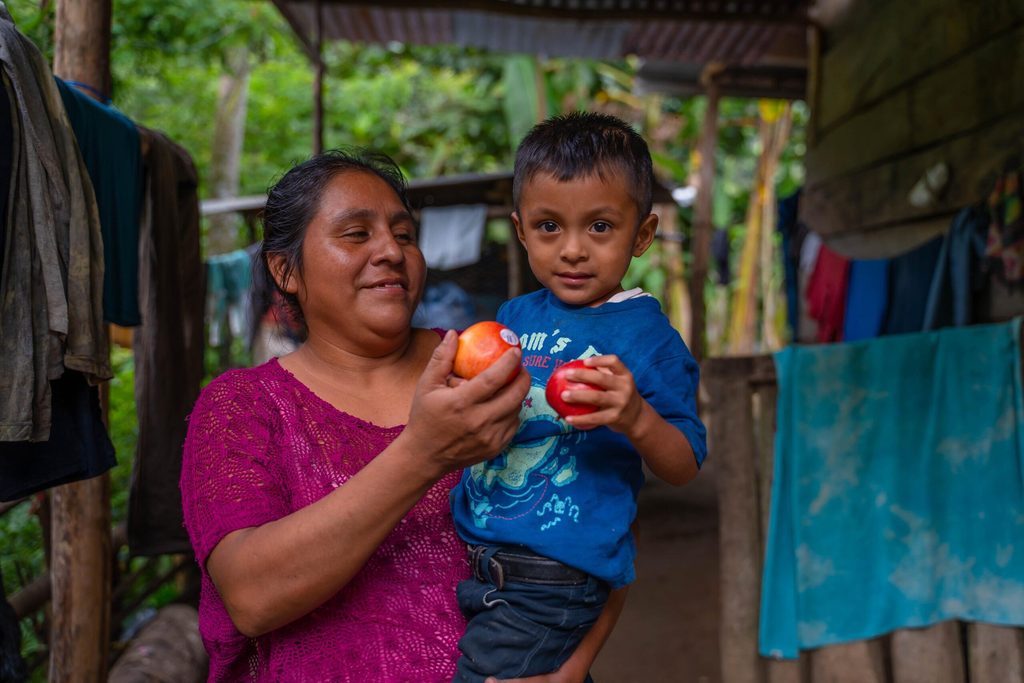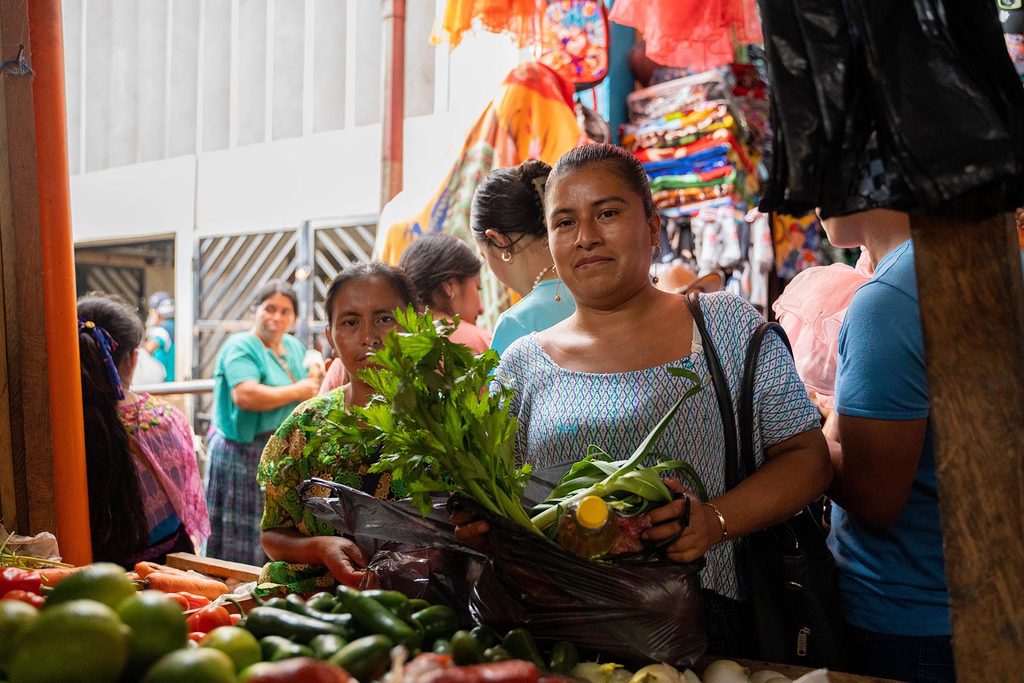Years of drought and crop failure in Guatemala has caused widespread food shortages, hunger and malnutrition. Families who have farmed the land for generations are now finding they are unable to produce any crops due to changes to the sub-tropical climate which has led to more frequent and severe droughts, as well as torrential and erratic rains.

Norma lives in San Pedro Carchá, a municipality in the Guatemalan department of Alta Verapaz. She lives close to the Polochic River which often floods during the rainy season, destroying crops and livestock and sweeping away personal belongings. “There is a river that affects the community where we live,we lost our crops, such as coffee, cardamom, maize,” Norma tell us, noting that the rains are becoming heavier with each passing year.
Most families living in Alta Verapaz will have similar stories to share; crops and livelihoods washed away by flood water, followed by intense droughts that leave the ground parched and soil turned to dust. Nothing can grow in these conditions. Research suggest that yields of maize and beans will likely by reduced in Guatemala by around 14% by 2050, with sugarcane dropping as much as 35%.
Families living close to rivers or on the slopes of the mountains, which are impacted by floods, landslides and mudflows, are most at risk. “We lost our harvest because of the floods, we were worried how and where we were going to get money for food,” shares Carmelina. “Food is important for children.”
As Guatemala’s hunger crisis deepens, nearly half of children under five are suffering from chronic malnutrition, according to the UNICEF – one of the world’s highest rates of child malnutrition. In some rural communities, that number is significantly higher.

Irma’s four-year-old son is one of many children whose development is suffering due to lack of food. “My son is really malnourished. There have been difficult times with my little boy. About a month ago he fainted. He didn’t want anything,” she shares, adding that her son was diagnosed with malnutrition during a nutritional check-up.
Cash transfers to families affected by the lost of livelihoods
Plan International is working hard to respond to the hunger crisis in Guatemala. Our emergency response teams are running malnutrition screenings in some of the country’s hardest-to-reach communities. A dedicated network of health workers are trained to screen children and refer them for treatment if they are identified as malnourished.
Irma’s son was on the verge of being sent to the hospital in Cobán, however she received a lifeline in the form of a cash transfer, enabling her to buy the nutritious food her son desperately needed. “We received 665 Quetzals (85 USD). Thanks to that I was able to buy some vegetables and everything we needed. I bought tomatoes, onions, garlic for the food, because with that we can keep our children healthy.”
For many families, this is the first time they have received any assistance. They can use the money to buy whatever they want, although families were asked to ensure that at least 60% of it was spent on food, seeds and other resources to meet their children’s nutritional needs.

“They gave us a talk about how we should use the money, what it will be useful for, and for what purpose. We were told that it is for children’s food,” explains Carmelina. “I feel very happy to receive this support. In the bank they treated us well. I feel happy because I now have a little money to buy some food for the children.”
Although she has worked since her daughter was born, single mother Josefa tells us her income is not enough to cover all their needs so she was delighted to receive her cash transfer. “You don’t often get a gift like this. I will use the opportunity to buy something for my daughter. In my community there are so many people who are in extreme poverty. That is why there is malnutrition in the families.”
Supported by Plan International’s Early Action Fund, the cash transfers will also help those who have lost their crops, enabling them to buy seeds to restart their farms. Carmelina also intends to use some of her money to register her one-year-old baby, something she has not been able to afford to do before now.
For Irma’s two young boys, their excitement at being able to eat their favourite food – apples – was joyful. “I was able to buy all the vegetables and the apples that they like so much,” says Irma as she watches her two son’s happily munch the juicy red fruits.
“My son is getting better. He is recovering. I see his joy and I feel happy too. When he starts going to school, he will be strong, and he will be happy. That support for us is thanks to Plan.”


